Kali Linux - Installation and Configuration
Kali Linux is one of the best security packages of an ethical hacker, containing a set of tools divided by the categories. It is an open source and its official webpage is https://www.kali.org.
Generally, Kali Linux can be installed in a machine as an Operating System, as a virtual machine which we will discuss in the following section. Installing Kali Linux is a practical option as it provides more options to work and combine the tools. You can also create a live boot CD or USB. All this can be found in the following link: https://www.kali.org/downloads/
BackTrack was the old version of Kali Linux distribution. The latest release is Kali 2016.1 and it is updated very often.
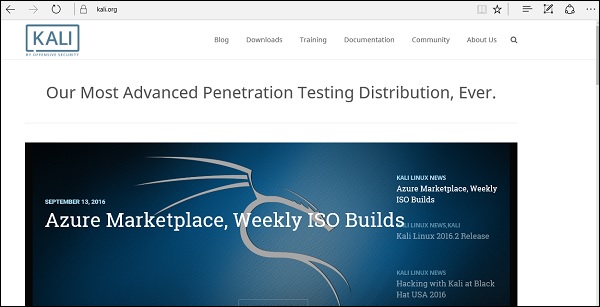
To install Kali Linux −
- First, we will download the Virtual box and install it.
- Later, we will download and install Kali Linux distribution.
Download and Install the Virtual Box
A Virtual Box is particularly useful when you want to test something on Kali Linux that you are unsure of. Running Kali Linux on a Virtual Box is safe when you want to experiment with unknown packages or when you want to test a code.
With the help of a Virtual Box, you can install Kali Linux on your system (not directly in your hard disk) alongside your primary OS which can MAC or Windows or another flavor of Linux.
Let’s understand how you can download and install the Virtual Box on your system.
Step 1 − To download, go to https://www.virtualbox.org/wiki/Downloads. Depending on your operating system, select the right package. In this case, it will be the first one for Windows as shown in the following screenshot.
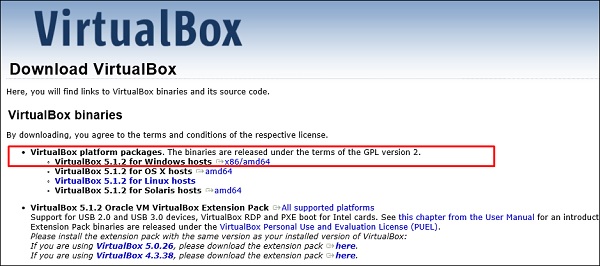
Step 2 − Click Next.

Step 3 − The next page will give you options to choose the location where you want to install the application. In this case, let us leave it as default and click Next.
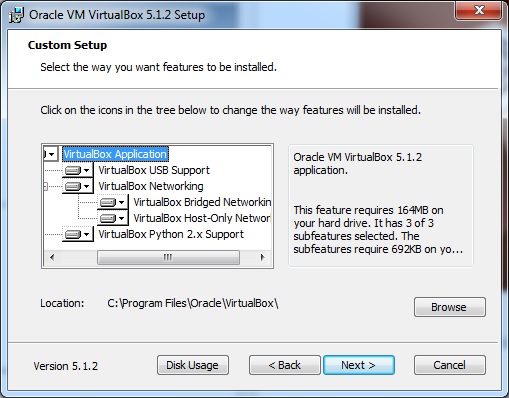
Step 4 − Click Next and the following Custom Setup screenshot pops up. Select the features you want to be installed and click Next.
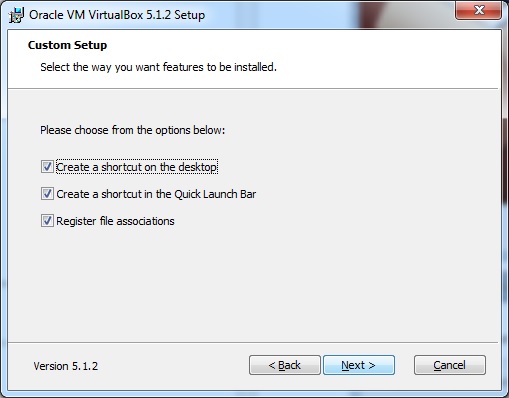
Step 5 − Click Yes to proceed with the installation.
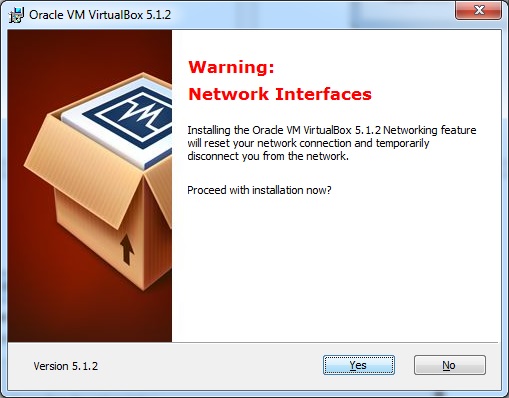
Step 6 − The Ready to Install screen pops up. Click Install.
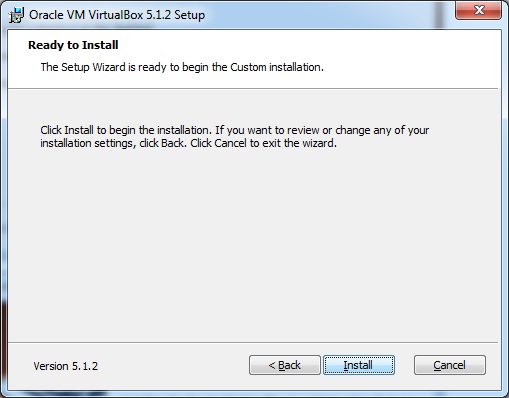
Step 7 − Click the Finish button.
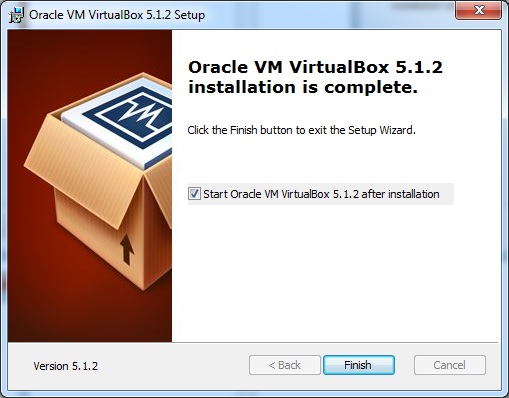
The Virtual Box application will now open as shown in the following screenshot. Now we are ready to install the rest of the hosts for this manual and this is also recommended for professional usage.
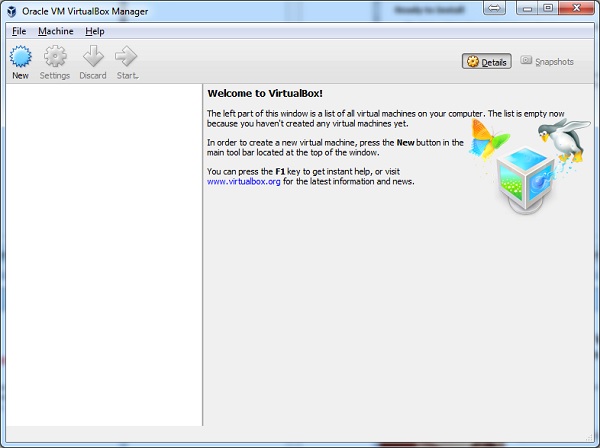
Install Kali Linux
Now that we have successfully installed the Virtual Box, let’s move on to the next step and install Kali Linux.
Step 1 − Download the Kali Linux package from its official website: https://www.kali.org/downloads/
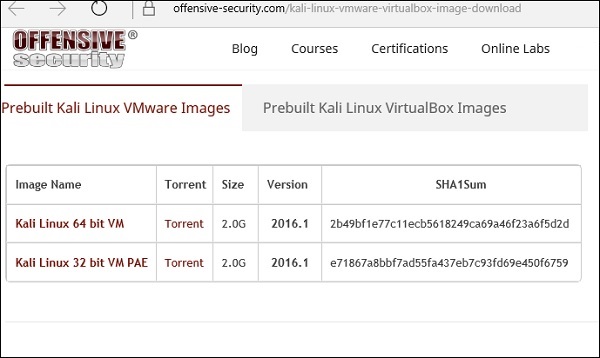
Step 2 − Click VirtualBox → New as shown in the following screenshot.
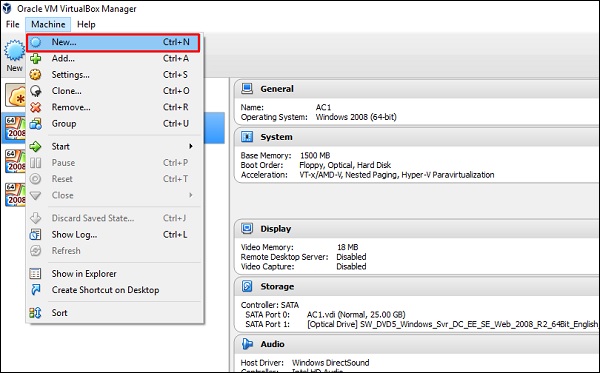
Step 3 − Choose the right virtual hard disk file and click Open.
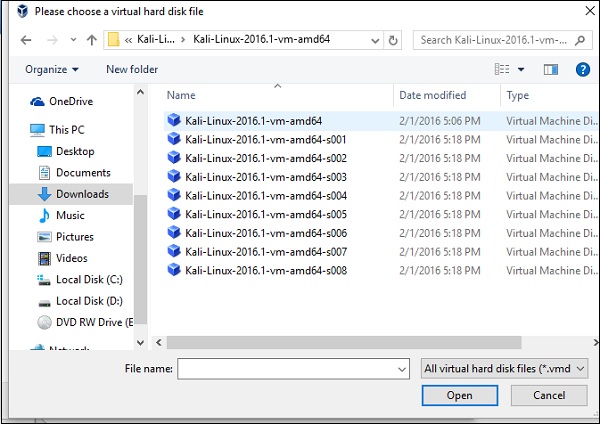
Step 4 − The following screenshot pops up. Click the Create button.

Step 5 − Start Kali OS. The default username is root and the password is toor.
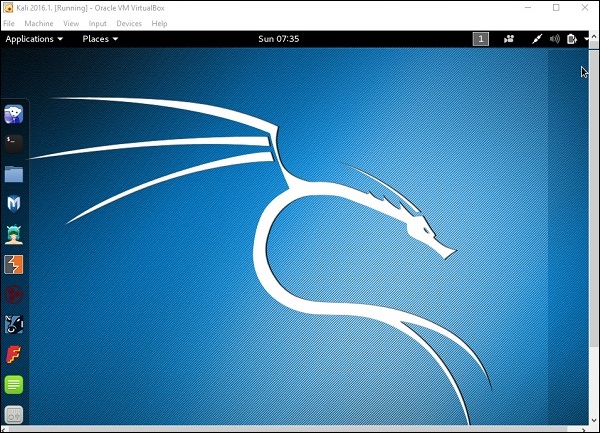
Update Kali
It is important to keep updating Kali Linux and its tools to the new versions, to remain functional. Following are the steps to update Kali.
Step 1 − Go to Application → Terminal. Then, type “apt-get update” and the update will take place as shown in the following screenshot.


Step 2 − Now to upgrade the tools, type “apt-get upgrade” and the new packages will be downloaded.

Step 3 − It will ask if you want to continue. Type “Y” and “Enter”.

Step 4 − To upgrade to a newer version of Operating System, type “apt-get distupgrade”.
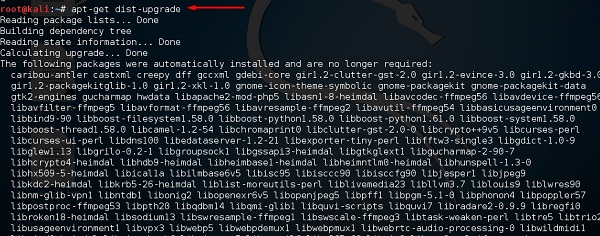
Laboratory Setup
In this section, we will set up another testing machine to perform the tests with the help of tools of Kali Linux.
Step 1 − Download Metasploitable, which is a Linux machine. It can be downloaded from the official webpage of Rapid7: https://information.rapid7.com/metasploitabledownload.html?LS=1631875&CS=web
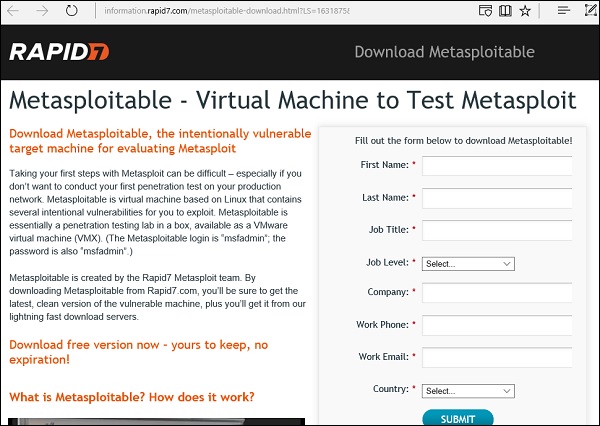
Step 2 − Register by supplying your details. After filling the above form, we can download the software.
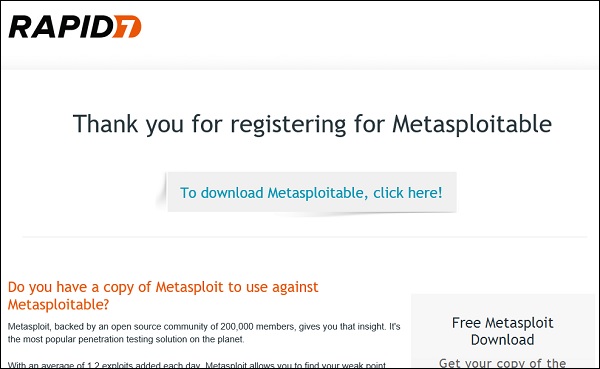
Step 3 − Click VirtualBox → New.

Step 4 − Click “Use an existing virtual hard disk file”. Browse the file where you have downloaded Metasploitable and click Open.
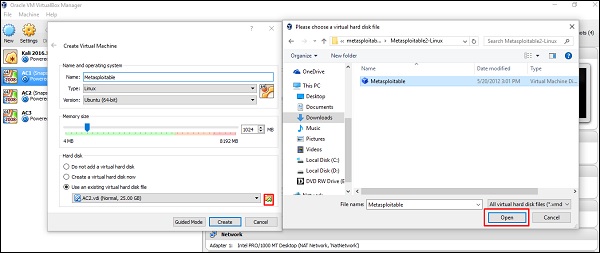
Step 5 − A screen to create a virtual machine pops up. Click “Create”.
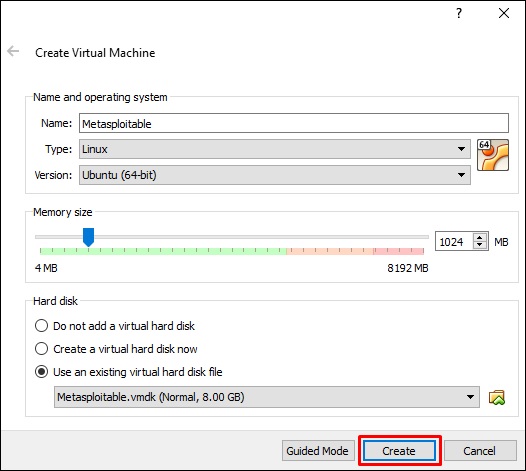
The default username is msfadmin and the password is msfadmin.
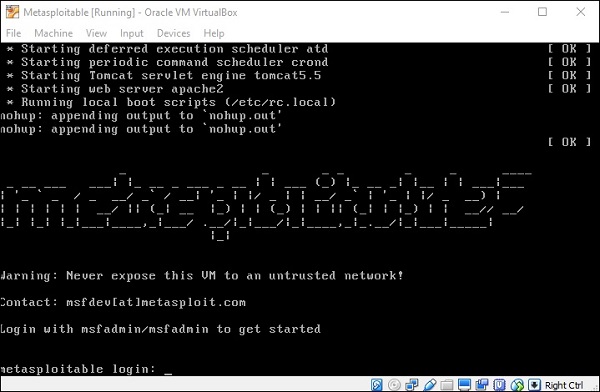
No comments:
Post a Comment